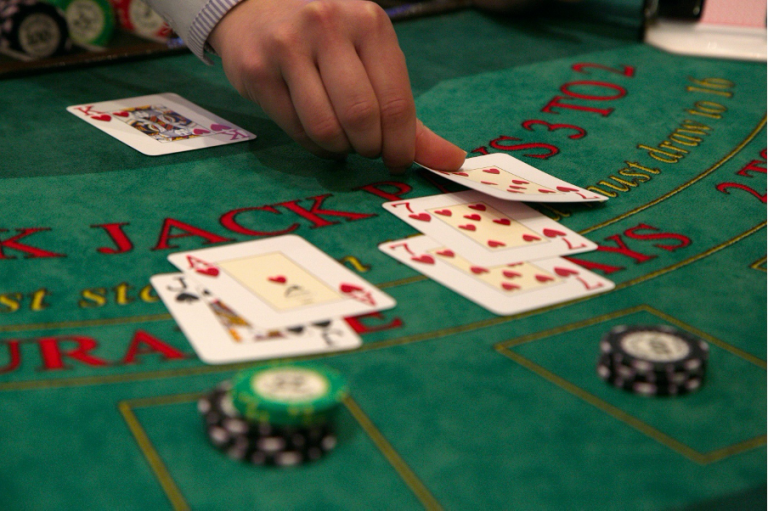Iron infusions are a widely administered medical procedure and are given to a broad range of people who may have low iron levels. Increasingly, there is some concern about the safety of these procedures, with occasional media reports gaining attention where things have gone wrong. These are worrying for anyone who has the procedure suggested to them as a treatment for iron deficiency.
Are there potential side effects and can they be long-lasting?
Iron infusions may be a relatively common practice, but they remain little understood. As with any medical procedure they are not without their risk. How high are these risks? Should they make us think twice about having the procedures, and what happens if something goes wrong?
Firstly, let’s take a look at exactly what iron infusions are.
What is an iron infusion?
Iron infusion is a procedure where iron is delivered to the body intravenously and is carried out when there is an urgent need to increase the amount of iron in someone’s body. Iron is one of the principal minerals that are found in the human body. It’s a key component of haemoglobin and a substance that’s vital to red blood cells. They help the blood carry oxygen around the body. Iron is also a key component of enzymes that help to manufacture energy in muscles.
Serious illness can develop if you don’t have enough iron in your body.
How is it administered?
A doctor or healthcare specialist, such as a nurse, will use a needle to insert a small tube (known as a cannula) into the vein. It’s usually inserted into the arm or the hand. The cannula is attached to a long tube, which is attached, in turn, to an IV bag of iron, which has been diluted with saline solution. The solution is then either pumped into the vein or uses gravity to slowly drip down the tube into the vein. The patient will be given the full dose over a specific amount of time, and this could take from anywhere from ten to sixty minutes, and in some circumstances, even longer.
What can lack of iron mean?
As well as low haemoglobin leading to iron deficiency anaemia, low iron levels can have all kinds of impacts. Symptoms can include fatigue, tiredness, and exhaustion. It can create difficulties sleeping, poor thought processing, mind fog and anxiety. It can also impact upon hair thickness, and even create restless legs.
These milder symptoms would not normally be treated by iron infusions. Instead, they’re probably best addressed through dietary changes. A nutritionist would be able to recommend appropriate changes to be made to help increase your body’s natural supply of iron.
Iron infusions help to counteract low iron levels, preventing serious illness and aiding recovery.
When are iron infusions given?
Iron infusions are a relatively common procedure. They’re used when someone isn’t producing enough iron, and as a result they have reduced haemoglobin levels in their system. This can lead to them developing anaemia.
In advanced cases, anaemia can lead to reduced oxygen carrying capacity in the blood. This can cause the sufferer shortness of breath and palpitations, as well as all the milder symptoms of iron deficiency listed above. Sometimes, people struggle with these conditions for many years, with changes in their diet and oral iron supplements failing to address the issue. In that case, a doctor may recommend iron infusions.
There are a numerous reasons why someone may suffer from an iron deficiency:
- Blood loss – this can have various causes including cancer, ulcers and monthly periods.
- A diet that doesn’t include enough iron.
- Medications that reduce the body’s ability to absorb iron, such as aspirin, heparin and coumadin.
- A body’s increased need for iron, such as during pregnancy, or for someone who is suffering from kidney failure.
Untreated iron deficiency anaemia can lead to a range of problems:
- It can put you at higher risk of illness and infections, as a lack of iron will have a detrimental impact on your immune system.
- May increase your risk of developing serious health complications. These could include an abnormally fast heartbeat, or heart failure.
- It can cause a range of complications before and after birth.
Iron infusions are generally safe
When administered correctly by a trained professional who is following all the necessary safety protocols, the procedure is generally safe. Countless iron infusion procedures are administered every day across the UK with no problems, other than mild side effects.
What are the mild side effects?
Around 10% of iron infusion cases will result in mild side effects. These include:
- Allergic reactions. These have been shown to affect less than 1 in 100 people and can result in a shortness of breath, a rash similar to a nettle rash, or hives and other itching. Itching skin can become red and flushed.
- Temporary changes in taste.
- A headache.
- Feeling sick or vomiting.
- Muscle and joint pain.
- Changes to blood pressure or pulse.
- Burning sensation and swelling at the infusion site.
- Irritation of the skin around where the infusion is given.
These are mostly temporary, and while being unpleasant, soon pass. The benefits of the treatment usually outweigh the brief discomfort they cause.
That said, it’s important that these potential side-effects are explained to anyone who is having the treatment.
Are there any potentially serious side effects?
Around 1% of all iron infusion treatments can lead to more serious side-effects. This is not a negligible number, and these potential side effects and the risks involved should be made clear before anyone begins the treatment.
If a patient has not had it made clear that there are potentially serious side-effects in a small number of cases, then they could be able to make a claim for medical negligence.
These more serious side-effects include:
- Bloating or swelling of the face, arms, hands, lower legs, or feet.
- Dizziness, faintness, or light-headedness when getting up suddenly from a sitting or lying position.
- Gastrointestinal pains such as nausea or cramps.
- Problems with breathing.
- Skin problems, including rashes.
- Chest pains.
- Low blood pressure.
- Anaphylaxis (a severe allergic reaction that can include difficulty breathing, itching, or a rash that can cover the whole body).
Extravasation injury
As well as bodily reactions to the treatment, intravenous treatment can sometimes carry the risk of extravasation injury. This is when damage is caused to the surrounding tissue to the injection site as the solution leaks from the vessel into neighbouring tissue space.
This can cause immediate pain, and the skin turning orange. Shortly after, the skin can take on a bruised look. In some cases, patients have been reassured that it is only temporary bruising. However, it can develop into permanent staining and in some cases it can be substantial and cause significant emotional distress.
Medical negligence and iron infusions
The number of medical negligence claims being brought as a result of iron infusion procedures going wrong is on the increase.
Lisa Musgrave, an experienced Medical Negligence solicitor at Mark Reynolds Solicitors recently resolved a case relating to a client who attended hospital for a routine iron infusion. As a result of an extravasation injury, the client was left with permanent staining to their arm. The hospital where the procedure was carried out failed to explain the risks and obtain proper consent from the client. They then failed to undertake the appropriate checks while the procedure was being carried out.
Thanks to the work of Ms Musgrave, the client was seen by both a camouflage make-up expert, and a clinical psychologist. Both these professionals were able to provide a range of strategies to help the client with her ongoing rehabilitation. The ongoing costs of both a lifetime of camouflage make-up and regular psychology appointments was covered by the medical negligence payout the client received. In this case, the settlement amount was £30,000.
Unfortunately, this story is not an isolated one. Failure to exercise due diligence and adhere to the proper protocols on behalf of medical professionals is leading to similar cases, some of which make it into the media.
This, in turn, damages public confidence in the procedure and may result in people who could benefit from an iron infusion being cautious about agreeing to have one. As well as gaining compensation for the damage and pain caused when a procedure goes wrong, medical negligence claims also prompt health providers to address the issues they raise.
Anyone who has found themself a victim of an iron infusion gone wrong or feels that they weren’t properly made aware of the associated risks, should contact a medical negligence solicitor for confidential advice.













 Bitcoin
Bitcoin  Ethereum
Ethereum  Tether
Tether  XRP
XRP  Solana
Solana  USDC
USDC  Cardano
Cardano  TRON
TRON  Lido Staked Ether
Lido Staked Ether  Avalanche
Avalanche  Toncoin
Toncoin